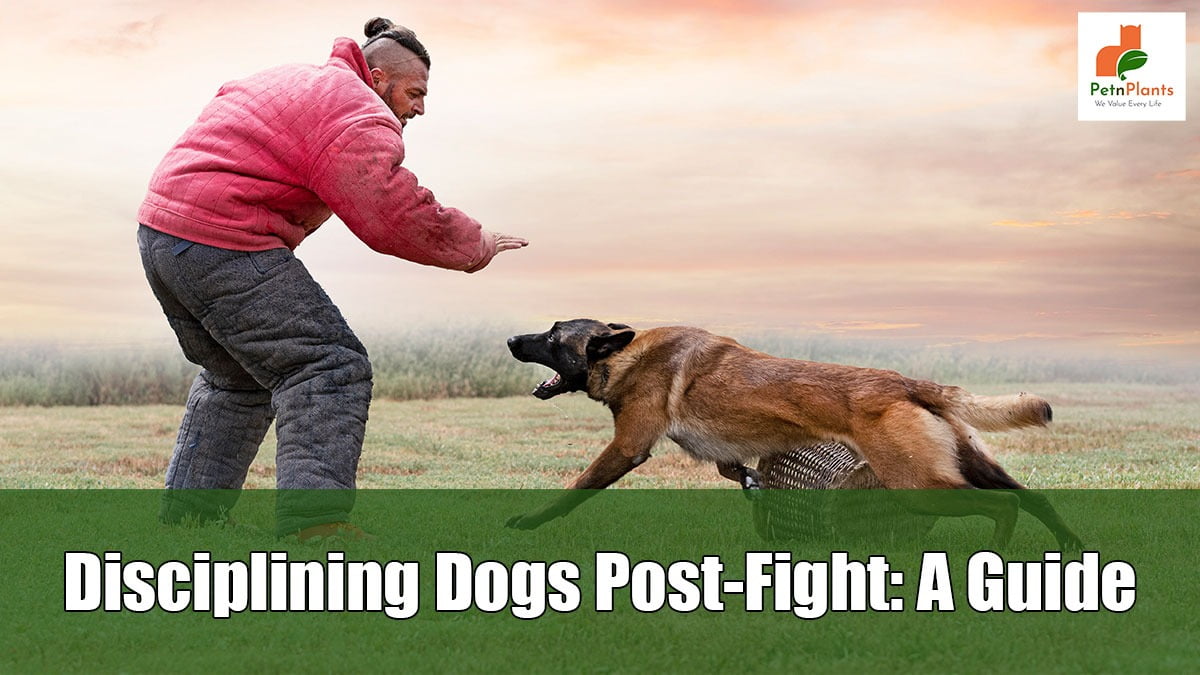Latest
Pets
Plants
How Indoor Plants Can Affect Pet Behavior, Stress & HealthJanuary 12, 2026
We Value Every Life

When it comes to canine behavior, understanding how to discipline a dog after fighting is crucial for any pet owner. Dog fights can be distressing and dangerous, not just for the dogs involved but also for their owners. The key lies in addressing the behavior appropriately to prevent future incidents. This comprehensive guide will explore practical methods to discipline your dog after a fight, ensuring their well-being and the safety of others.
Before disciplining, it’s essential to understand what triggers your dog’s aggressive behavior. Common triggers include fear, territorial instincts, or competition for resources.
 Observing Body Language:
Observing Body Language:Dogs often exhibit warning signs before a fight, such as growling, baring teeth, or a stiff posture. Recognizing these signs can help in preventing future fights.


Immediately separate the dogs involved in the fight. Use a calm voice and demeanor to avoid escalating the situation.

Check for any injuries and seek veterinary care if necessary. This also helps in understanding the severity of the fight.
Consistency is vital in dog training. Use firm, clear commands to establish boundaries and acceptable behavior.
Reward good behavior with treats or praise. This encourages your dog to repeat these behaviors instead of resorting to aggression.
Dogs need to understand their place in the family hierarchy. Use confident body language and voice to establish your role as the pack leader.
Regular schedules for feeding, walks, and playtime can provide stability and reduce anxiety, which may lead to aggression.

Proper socialization is crucial in preventing dog fights. Expose your dog to different environments, people, and other dogs in controlled settings.
Professional training classes can help correct aggressive behavior and teach you how to handle your dog in various situations.
If aggression persists, consult a professional. They can provide tailored advice and possibly identify underlying health issues contributing to the aggression.
A structured behavior modification program under professional guidance may be necessary in severe cases.
Learning how to discipline a dog after fighting is not just about correcting unwanted behavior; it’s about understanding and addressing the underlying causes of aggression. Consistent training, positive reinforcement, proper socialization, and professional guidance can all play a role in preventing future fights. Remember, the goal is to ensure a peaceful and safe environment for your dog and those around them. Taking a proactive and informed approach to discipline can help your dog become a well-behaved and cherished family member.
Pet N Plants, a passionate group of authors who are devoted pet and nature enthusiasts. With over 15 years of experience in pet and plant care, our authors bring a wealth of knowledge and a deep love for all things flora and fauna. Each member of our team is dedicated to sharing insightful tips, detailed care guides, and the latest trends to help you nurture your beloved pets and plants. Whether you're a seasoned gardener or a pet parent, our experts are here to support your journey in creating a thriving, vibrant home environment for all your living companions.
0